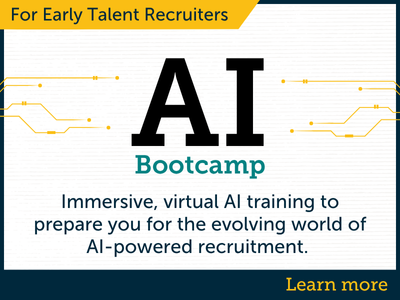In early February, Cigna held a virtual event to increase awareness of Historically Black Colleges and Universities (HBCUs) and spotlight the prominence and legacy of HBCUs in the Black community.
“We also aimed to heighten the focus on HBCU alumni engagement, build employee connections, foster a sense of belonging, and socialize talent strategy to get alumni and allies involved,” explains Keisha Farrington, Cigna’s diversity recruiting strategist.
The one-hour “HBCU Tribute – Celebrating Our Legacy, Culture, & Future” was hosted via WebEx for internal employees and had 450 attendees. It was also recorded for replay.
The “HBCU Tribute” event was developed collaboratively by Cigna’s diversity recruiting team and its African-American/Black Enterprise Resource Group.
Several HBCUs were represented, including Tennessee State University, Morehouse College, Fisk University, Howard University, Xavier University of Louisiana, Norfolk State University, Jackson State University, and North Carolina A&T State University.
Following Farrington’s opening remarks, attendees were shown an internal employee spotlight video featuring nine Cigna HBCU alumni who shared key information everyone should know about HBCUs.
Building on the video’s theme, a panel of several of Cigna’s HBCU graduates discussed the strengths and misconceptions about the HBCU academic and social experience, including why HBCUs should always be considered for prospective students and recruiters looking for top talent.
Panelists included Mike Triplett, president – U.S. commercial (South Carolina State); Corey Robinson, senior director – operations (Tuskegee University); Melba Saunders, senior advisor – marketing communications (Spelman College/undergraduate and Howard University/graduate); and Sydnei Patton, advisor – business project (Fisk University/undergraduate and Tennessee State University/graduate – currently enrolled).
“HBCUs have a long-standing role in the Black community, and we wanted to celebrate that legacy while educating allies,” Farrington says.
“We reinforced that HBCUs are great sources of talent for all open roles: early career, class hiring, professional, and executive. Cigna has more than 700 HBCU alumni representing more than 85 HBCUs. We wanted to build a sense of community for them and show allies how they can support HBCUs.”
The “HBCU Tribute’s” closing remarks and call to action, provided by Kimberly Funderburk, vice president – government and education at Cigna and graduate of Clark Atlanta University, urged attendees to get involved with Cigna’s HBCU engagement and networking efforts, share their expertise, and notify the diversity recruiting team about any upcoming about events and organizations that can help Cigna attract top HBCU talent.
The event had many positive outcomes and Cigna is continuing to build on that generated momentum.
“Our HBCU alumni feel more connected to each other,” Farrington says.
“Our talent acquisition leaders are more intentional about partnering on diversity recruiting initiatives and consulting with our HBCU alumni when new positions become available. We are also exploring options within the African-American/Black Enterprise Resource Group to deepen that sense of community and belonging.
“In this highly matrixed environment, it’s important for all functional areas to stay connected on our common goals and identify resources that can support our DEI initiatives. We saw an instant and steady interest in the upcoming activities and increased involvement in the local communities where we live, work, and thrive.”
To aid allies who want to support HBCUs, Cigna is training campus/community ambassadors to share its key messages and pitch Cigna to top talent. It is also leveraging its HBCU alumni to share job opportunities as well as its subject matter experts to bring innovative and helpful programming to HBCU students.
“We plan to showcase the Black college experience again and to add different perspectives and layers,” Farrington says.
“For example, we have been working with Cigna employees who belong to Black Greek letter organizations, also known as the ‘Divine Nine.’ We shared a brief intro video featuring the Divine Nine and plan to share more information about how those organizations fit into our talent strategy. To date, we’ve identified more than 150 Divine Nine members within Cigna and we are building out our strategy to further collaborate with them to share our message.”
Farrington offers several suggestions to her colleagues in other organizations for creating, holding, and managing a similar event, including:
- Understanding that planning and coordination takes several months, so looping in matrixed partners as soon as possible is key;
- Being clear on the audience and key messages, and identifying speakers and participants who align with those messages;
- Featuring diversity in multiple dimensions (gender, career level, tenure, department, and more) throughout the event and asking an executive leader to participate or moderate/host;
- Scheduling time with the panelists to ensure all key question points are covered without duplication and to ensure everyone has a chance to speak;
- Having a call to action; and
- Selecting thoughtful survey questions to gauge the attendees’ reception to understand how to improve future programming.
Farrington says the “HBCU Tribute” strongly supports Cigna’s diversity, equity, and inclusion efforts, especially its work with and support of HBCUs.
“Cigna seeks to provide programming for HBCUs that will promote mental wellness, physical activity, and healthy eating habits,” she notes.
“We want to invest in HBCU students early via mentorships, professional development workshops, and other learning opportunities to support their personal and professional growth. And we want to lessen their burden by giving back.”
Cigna is also leveraging the “HBCU Tribute” as a recruiting tool. To establish a sense of community with prospective candidates, Cigna’s recruitment marketing team created a companion video to share on their Facebook careers page that features HBCU alumni speaking about how their HBCU experience shaped their career journey and successes.
“Representation matters!” Farrington says.
“We want prospective candidates to see a reflection of themselves at Cigna, to feel a sense of comfort knowing there’s an established community here, and to pique their curiosity about employment opportunities at Cigna. Cigna wants to be the inclusive employer of choice.”






